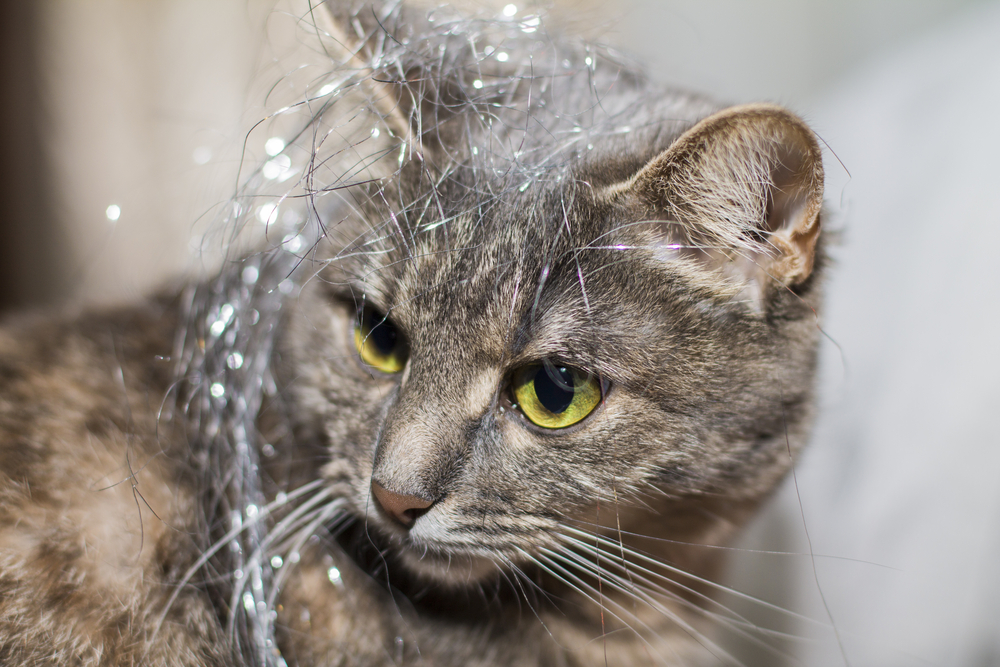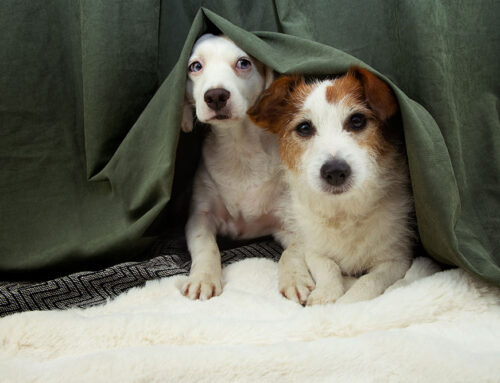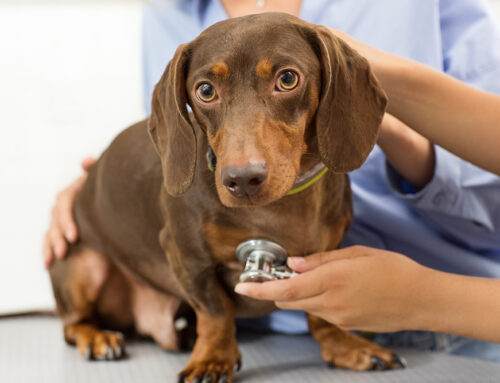As the year’s end draws near, you may think you’ve made it through without experiencing any pet-related calamities. However, you must still help your pet navigate the fraught holiday season unscathed. To help your pet avoid a veterinary emergency during the end-of-year holidays, follow our Animal Clinic of Council Bluff team’s tips for keeping your cat or dog safe, healthy, and happy.
Keep toxic and hazardous foods away from your pet
Hazardous foods abound during the holiday season, tempting your pet to ingest items that can make them ill. Ensure your pet keeps their paws off the following food-related holiday hazards:
- Turkey and ham — Meaty main dishes include savory seasonings, crispy turkey skin, bones, fat, and salt, which pose multiple threats to your pet’s health. Seasonings often contain ingredients that are toxic to pets, while turkey skin and dark meat are high in pancreatitis-inducing fat. Bones, cooked or not, can damage your pet’s teeth or become lodged in their gastrointestinal (GI) tract.
- High-fat dishes — Butter, cream, gravy, and other foods high in fat can be exceptionally dangerous to pets already predisposed to pancreatitis, such as miniature schnauzers and Yorkies. Do not serve your pet buttery mashed potatoes, rich gravy, and other high-fat dishes.
- Garlic, onions, and chives — Foods from the Allium family can destroy your pet’s red blood cells and cause anemia.
- Currants, raisins, and grapes — While the exact toxicity level is unknown, grapes and their dried cousins can cause pets to experience kidney failure.
- Proofing yeast dough — If your pet eats proofing yeast dough, the microorganisms continue to rise within your pet’s stomach, leading to alcohol poisoning, stomach bloat, or a GI obstruction. Baked yeast bread is much safer, although you should still limit your furry pal’s dinner roll intake.
- Chocolate — The darker the chocolate, the more dangerous it is for your pet. A tiny amount of baker’s chocolate can cause more severe illness than a large amount of milk chocolate. However, to prevent your dog or cat from experiencing a holiday emergency, ensure they eat no chocolate.
- Xylitol (i.e., sugar substitute) — A popular sweetener, xylitol is added to many foods, including peanut butter, gum, and baked goods. Remember, your pet can develop severe hypoglycemia and liver failure if they ingest xylitol.
- Alcohol — Fruity cocktails and craft beers can entice your pet into lapping up a spill or sneaking sips from an unattended glass. However, because pets are much more susceptible than people to alcohol’s effects, they can develop alcohol poisoning quickly.
- Food preparation supplies — As you frantically clean up the kitchen before your guests arrive, your pet may take advantage of your distraction and scrounge for scraps in the trash can. Grease-covered foil, turkey twine and brine, and other food preparation items can lure your pet into eating foreign objects that can lodge in their GI tract.
- Spoiled leftovers — When you can eat no more leftovers, and toss them in the trash, ensure you securely latch the bin. Your pet won’t care how old the leftovers are, and can suffer serious stomach upset if they eat spoiled food.
Educate guests on proper pet-iquette
As holiday festivities ramp up, your guests may become rowdy and rambunctious when overabundant good cheer fuels them. To help ensure your furry pal remains safe and calm during holiday celebrations, educate your guests on proper etiquette when interacting with your dog or cat. Ensure your holiday visitors are familiar with your house rules:
- Allow your pet to initiate and end all interactions
- Avoid chasing or restraining your pet for hugging, petting, or playing
- Refrain from giving your pet table scraps or unapproved treats
- Put all coats, purses, and suitcases away, out of your pet’s reach
- Avoid leaving unattended food, drinks, or trash within paw’s reach
- Stay out of your pet’s sanctuary
- Shut all doors to help ensure your pet stays safely inside the house
Keep your pet away from the Christmas tree
While the Christmas tree is your holiday decor’s shining star, it is also one of the most dangerous for your pet. The prickly needles, irritating sap, chemical-laden tree stand water, and an unstable tree base can harm your furry pal if they venture too close. To help keep your pet and your Christmas tree safe, place the tree in an area your pet can’t access, or block off the tree with baby gates or a playpen.
Ditch delicate or dangerous holiday decor

Many traditional holiday decor items pose hazards to your pet. As you plan your winter wonderland setup, avoid using the following hazardous decorations:
- Salt dough and glass ornaments
- Metal ornament hooks
- Tinsel and ribbons
- Uncovered electrical cords
- Porcelain and ceramic figurines (e.g., angels, nativity scene)
- Lit candles
- Open fireplaces
- Toxic seasonal plants (e.g., holly, mistletoe, amaryllis, kalanchoe, cyclamen)
The holidays are meant to be a time for fun and festivity, not worry and anxiety about your pet’s health. If your furry pal gets into mischief this holiday season, contact our Animal Clinic of Council Bluffs team.






Leave A Comment